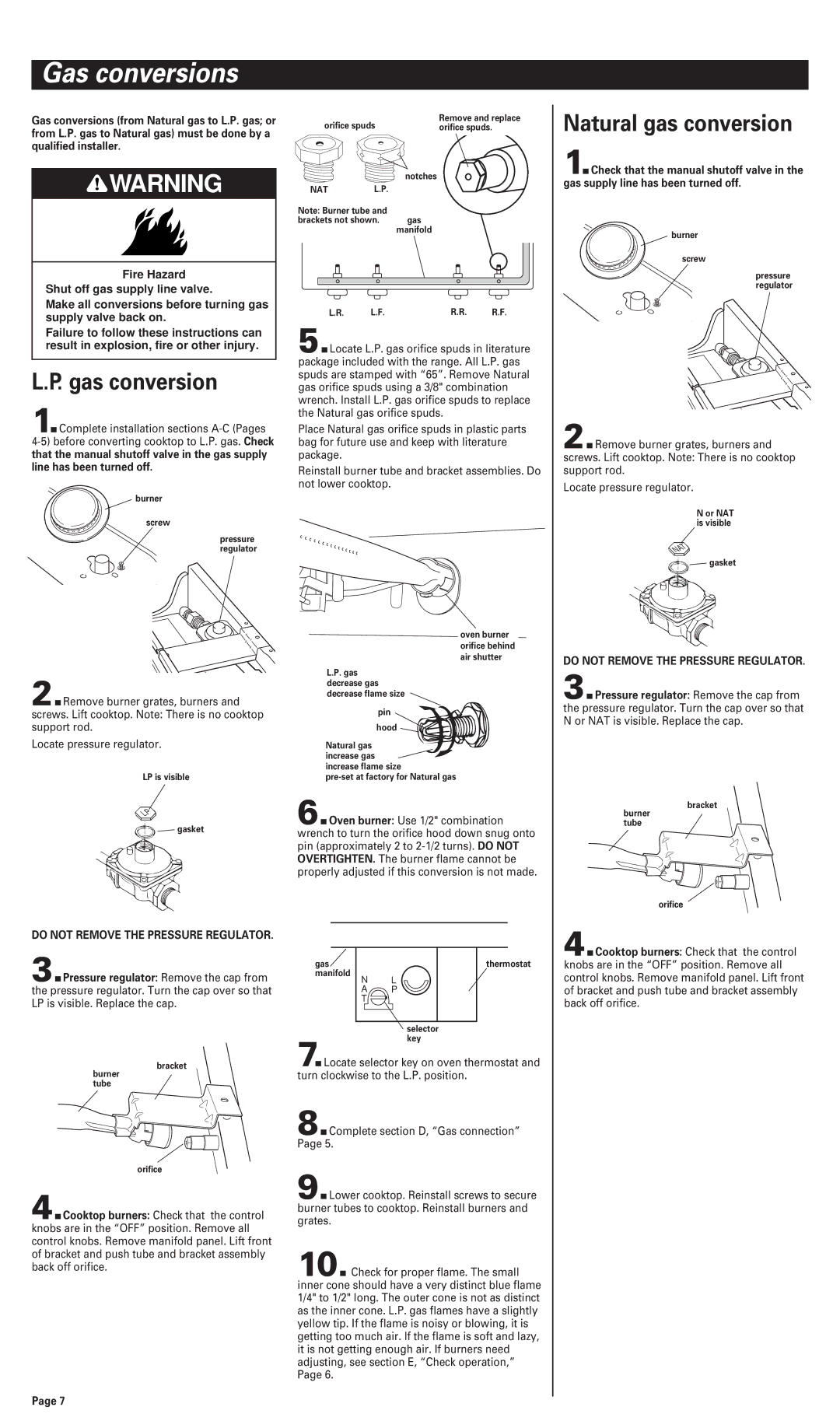FGP300JN0 specifications
The Whirlpool FGP300JN0 is a standout gas range that merges advanced technology with user-friendly design, catering to both amateur cooks and culinary experts alike. This range features a robust array of functionalities that enhance cooking experiences, all while maintaining an aesthetically pleasing appearance.At the heart of the FGP300JN0 is its powerful gas cooktop, equipped with four burners, including a high-output burner designed for rapid heating. This feature allows for quicker boiling and efficient stir-frying, making meal prep more efficient. Additionally, the simmer burner is perfect for delicate tasks like melting chocolate or simmering sauces without the risk of burning.
One of the most notable characteristics of this range is its spacious oven, which includes a large capacity that allows users to cook multiple dishes simultaneously. It employs the AccuBake temperature management system, ensuring even baking results by using a combination of advanced technology to monitor the oven temperature accurately. This feature is crucial for achieving perfectly baked goods and uniform cooking.
The Whirlpool FGP300JN0 also boasts a convenient self-cleaning option. This technology utilizes high temperatures to eliminate food residue and grease buildup, saving time and effort for maintenance. The oven’s interior features a smooth surface that further enhances the ease of cleaning.
In terms of design, the FGP300JN0 comes with a sleek and modern exterior that fits seamlessly into various kitchen styles. The stainless steel finish not only adds to its durability but also offers a contemporary look that appeals to today's homeowners.
User-friendly controls on this model include easy-to-read knobs and a clear display, making it simple to adjust temperatures and settings. Whirlpool’s commitment to safety is showcased in its features, which include oven lockout and flame failure devices, ensuring peace of mind during use.
In summary, the Whirlpool FGP300JN0 gas range is a versatile and reliable cooking appliance, equipped with multiple features and technologies designed to elevate the cooking experience. Its powerful burners, spacious oven, self-cleaning convenience, and stylish design make it an excellent addition to any modern kitchen. Whether it's everyday meals or special occasions, this gas range stands ready to meet diverse culinary needs.

